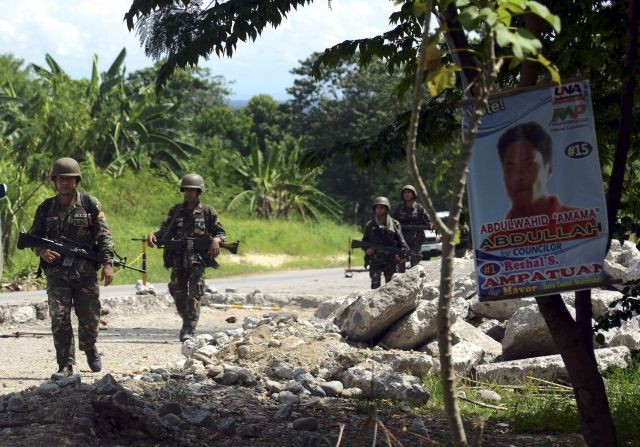Philippines Communist Guerrillas Kill Seven Filipino Policemen In Bombing, Gun Attack

Seven Filipino policemen were killed Monday in a Communist guerrilla ambush in the northern Philippines, news reports said, citing officials.
A truck carrying members of the elite Special Action Force for a routine medical test was hit by an explosion near Allacapan, in Cagayan province, 400 km (250 miles) north of Manila. The vehicle then immediately came under gunfire from the rebels of the New People’s Army, AP reported, citing the police director, Chief Superintendent Rodrigo de Garcia.
De Garcia said the police engaged in a firefight, but could not contain the rebels, who managed to get away with weapons from the slain personnel. Philippines troops have launched a manhunt for the militants.
Seven other officers who were wounded escaped the scene and were rescued by government troops later.
The attack follows Saturday’s deadly clash in the outskirts of the coastal town of Patikul in Sulu province between Filipino marines and the al Qaeda-linked Abu Sayyaf militants, resulting in the death of seven soldiers and five militants.
The Maoist-inspired NPA rebels, backed by the Communist Party of the Philippines, have waged one of the deadliest insurgencies in the Philippines, aimed at ousting the government by means of guerrilla warfare.
The CPP, despite its agrarian revolution model and Maoist sympathies, was denounced by the Communist Party of China in 2011.
Assaults, killings, raids and acts of extortion, carried out by the NPA, blacklisted as a foreign terrorist organization by the U.S. State Department, have resulted in the death of several thousands of people since its founding in 1969.
The organization is officially estimated to have at least 5,000 members, with its senior leadership living in self-imposed exile in the Netherlands and claiming to command operations from there.
The outfit funds its activities through extortion rackets and bases its operations in rural Luzon, Visayas, and parts of northern and eastern Mindanao, according to the U.S. government data. They also have active units in Manila and other metropolitan centers.
The Philippines military declared in 2011 that at least 23 provinces were no longer under the influence of the NPA, although the CPP denies the claim.
In April, peace talks between the Philippines government and the rebels were hit by a roadblock, dashing hopes of ending the decades-long insurgency. The government blamed the NPA for the failure, accusing its leadership of setting new and impossible preconditions for talks, including the release of senior rebels in captivity.
The Philippines government said in February that 164 Filipino soldiers, policemen and civilians were killed in Communist rebel attacks last year.
© Copyright IBTimes 2025. All rights reserved.






















